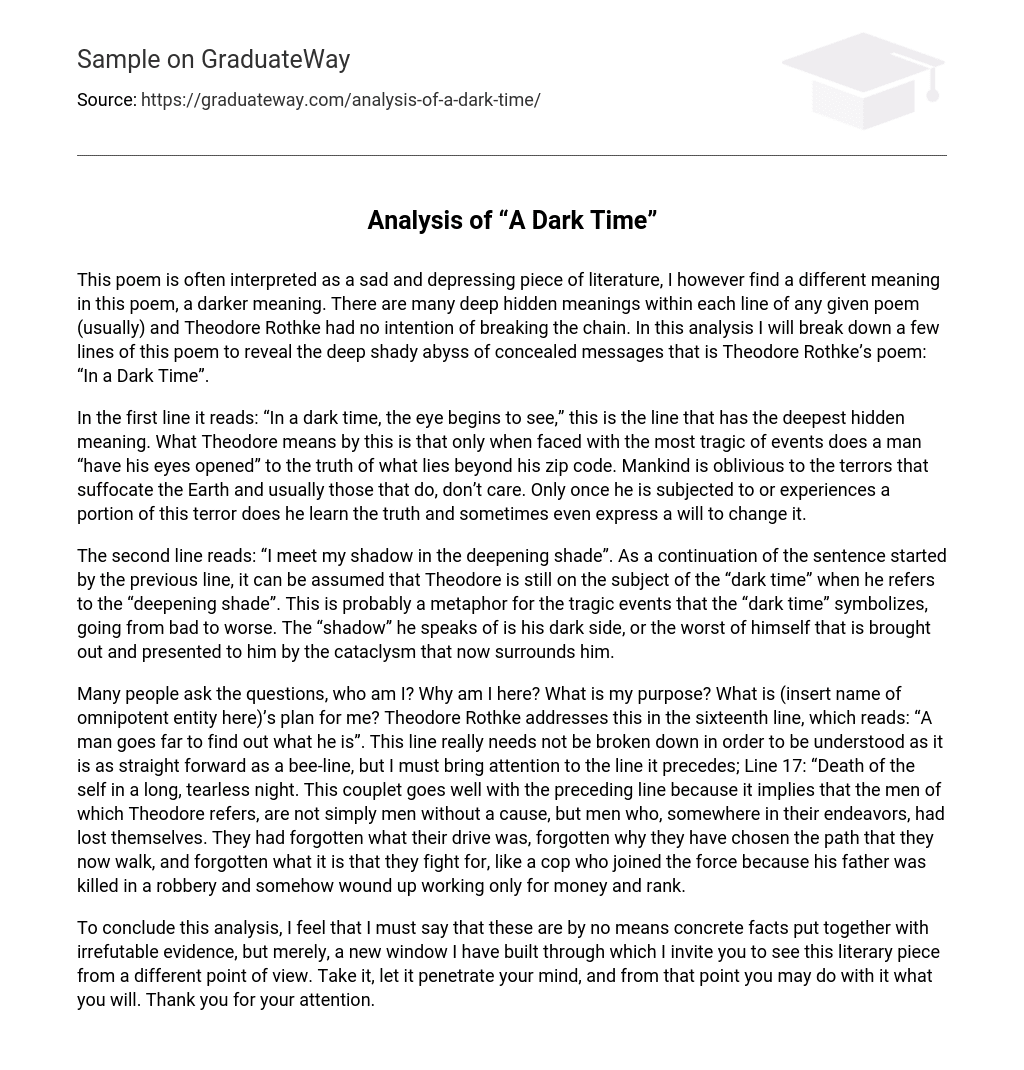This poem, “In a Dark Time” by Theodore Rothke, is often seen as a melancholic and somber work of literature. However, I interpret it differently, finding a darker meaning within it. Rothke deliberately includes numerous hidden meanings in each line of his poem, maintaining the enigmatic tone. In this analysis, I will dissect a few lines of the poem to uncover the profound and concealed messages in Rothke’s work.
“In a dark time, the eye begins to see,” is a line that holds profound significance. Theodore suggests that only when confronted with moments of great tragedy does one truly awaken to the realities beyond their immediate surroundings. Humanity often remains ignorant of Earth’s suffocating horrors, and those who are aware may not care. However, it is only when an individual personally faces or witnesses some of this terror that they come to know the truth and sometimes even feel compelled to bring about change.
The second line states: “I meet my shadow in the deepening shade.” It can be inferred that Theodore is still discussing the “dark time” when he mentions the “deepening shade,” continuing the thought from the previous line. The “deepening shade” likely represents the worsening nature of the tragic events symbolized by the “dark time.” Theodore refers to his “shadow,” which represents his darker self or the worst aspects of his character that are revealed and brought forth by the cataclysmic circumstances surrounding him.
Many individuals ponder over their identity, purpose, and the plan designated for them by an omnipotent entity. Theodore Rothke examines this in the 16th line, which declares: “A man goes far to find out what he is.” The significance of this line is rather apparent and does not necessitate further analysis. However, it is crucial to acknowledge its preceding line: “Death of the self in a long, tearless night.” This couplet complements the previous line as it suggests that the men referenced by Theodore are not merely aimless beings. Instead, they are individuals who have lost themselves along their journey. They have forgotten their motivation, why they have chosen their current path, and what they are fighting for. It is akin to a police officer who initially joined the force due to a personal tragedy but somehow ended up prioritizing monetary gain and status.
In summary, I want to emphasize that the following analysis does not present indisputable facts but rather offers a new perspective on this literary piece. This interpretation serves as a new window through which I invite you to view it. I encourage you to consider it thoughtfully and decide for yourself how you want to engage with it. Thank you for your attention.





